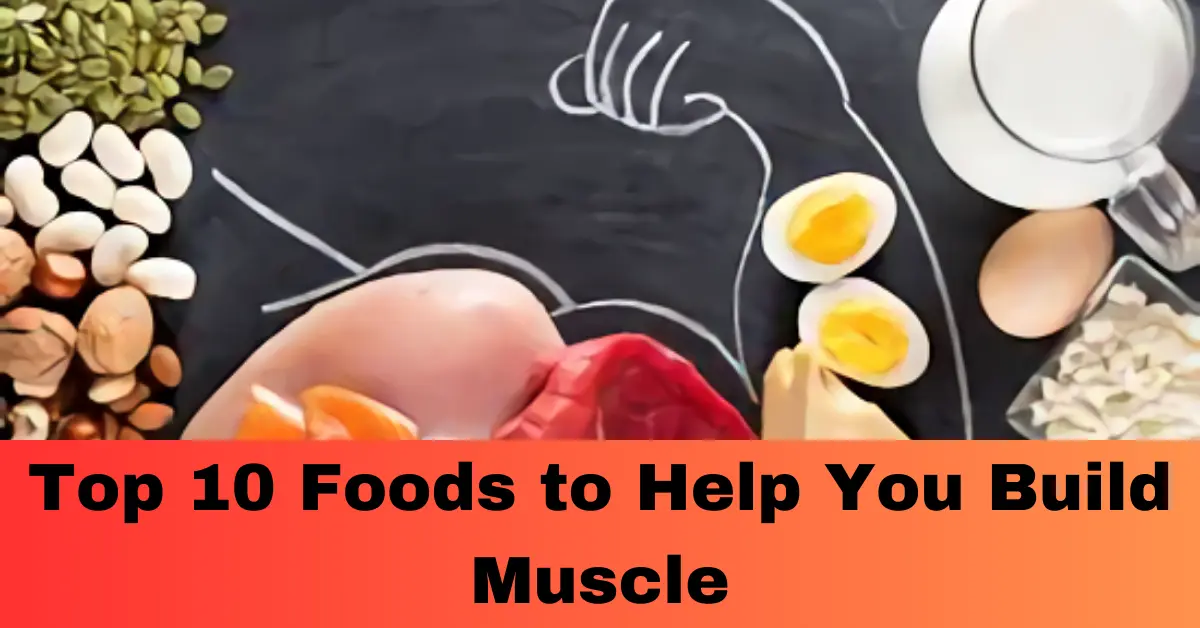Introduction
Top 10 Foods to Help You Build Muscle
When it comes to building muscle, hitting the gym is only half the battle. What you eat plays a huge role in helping your muscles grow and recover. Wellhealth How to Build Muscle Tag If you’re looking to bulk up, you’ll need to fuel your body with the right nutrients. In this blog post, we’ll take a look at the top 10 foods that can help you build muscle. These foods are not only packed with protein but also contain essential vitamins and minerals to support your overall health. So, let’s dive in and discover the best foods to add to your diet for muscle growth!
Top 10 Foods to Help You Build Muscle
When you’re working to build muscle, it’s important to focus on both your workouts and your diet. Eating the right foods can make a big difference in how quickly and effectively your muscles grow. But with so many options out there, it can be tough to know which foods are best. That’s why we’ve put together this list of the top 10 foods that are great for muscle building. These foods are packed with protein and other essential nutrients that support muscle growth and recovery. Whether you’re a seasoned athlete or just starting your fitness journey, incorporating these foods into your diet can help you achieve your muscle-building goals.
Why is Eating the Right Foods Important for Building Muscle?
Eating the right foods is crucial for muscle growth and recovery. Here’s why:
1. Provides Essential Nutrients
Proteins: Essential for muscle repair and growth. Proteins provide the building blocks (amino acids) needed for muscle tissue.
Carbohydrates: Supply the energy required for intense workouts and help replenish glycogen stores in muscles.
Healthy Fats: Support overall health and provide a long-lasting energy source.
Vitamins and Minerals: Play a vital role in various bodily functions, including muscle contraction and recovery.
2. Enhances Muscle Recovery
Reduces Muscle Soreness: Foods rich in antioxidants and anti-inflammatory properties help reduce muscle soreness after workouts.
Speeds Up Recovery: Proper nutrition can accelerate the recovery process, allowing you to train more effectively and frequently.
3. Supports Overall Health
Boosts Immune System: A balanced diet strengthens your immune system, reducing the risk of illness that can interfere with your training.
Maintains Energy Levels: Consuming the right nutrients ensures you have consistent energy levels throughout the day, improving workout performance and overall well-being.
4. Improves Workout Performance
Increases Strength and Endurance: A diet rich in muscle-building foods can enhance your strength and endurance, helping you lift heavier and train longer.
Enhances Focus and Motivation: Proper nutrition supports brain function, keeping you focused and motivated during your workouts.
5. Promotes Lean Muscle Mass
Reduces Body Fat: Combining the right foods with regular exercise helps reduce body fat, promoting lean muscle mass.
Improves Body Composition: A balanced diet supports muscle gain while minimizing fat gain, improving your overall body composition.
Common FAQs About Muscle-Building Foods
1. How much protein do I need to build muscle?
Most experts recommend consuming about 1.6 to 2.2 grams of protein per kilogram of body weight per day.
This helps ensure your muscles have enough building blocks to grow and repair.
2. Can I build muscle without eating meat?
Yes, you can build muscle without eating meat. Plant-based proteins like beans, lentils, tofu, quinoa, and nuts can provide the necessary nutrients for muscle growth.
3. When should I eat these muscle-building foods?
It’s best to spread your protein intake throughout the day. Try to include protein-rich foods in every meal and snack. Also, having a protein-rich meal or snack within two hours after your workout can help with muscle recovery.
4. Do I need supplements to build muscle?
While whole foods should be your primary source of nutrients, supplements like protein powder can be convenient and helpful, especially if you have trouble meeting your protein needs through food alone.
5. Are carbs important for building muscle?
Yes, carbs are important as they provide the energy needed for your workouts. They also help replenish glycogen stores in your muscles, which is crucial for recovery and future performance.
6. Can I eat fats if I want to build muscle?
Absolutely! Healthy fats are essential for overall health and can help provide long-lasting energy. Focus on sources like avocados, nuts, seeds, and fatty fish.
7. How much water should I drink when building muscle?
Staying hydrated is key for muscle function and recovery. Aim to drink at least 8-10 cups of water per day, and more if you’re sweating heavily during workouts.
8. What are some good snacks for muscle building?
Some great muscle-building snacks include Greek yogurt with berries, a handful of nuts, cottage cheese with fruit, protein smoothies, and hard-boiled eggs.
9. Is it okay to eat before bed if I’m trying to build muscle?
Yes, having a small protein-rich snack before bed, like cottage cheese or Greek yogurt, can help with muscle recovery and growth overnight.
10. How long will it take to see muscle growth?
Building muscle takes time and consistency. With the right combination of diet, exercise, and rest, you might start to see noticeable changes in 8-12 weeks.
Conclusion
Incorporating the top 10 muscle-building foods into your diet is essential for achieving your fitness goals. These nutrient-rich foods provide the building blocks your muscles need to grow and recover effectively.
Whether you’re new to fitness or a seasoned athlete, <<anchor test>> focusing on these foods will support your journey towards a stronger and healthier body. Keep eating well, keep training hard, and watch your muscles thrive!











